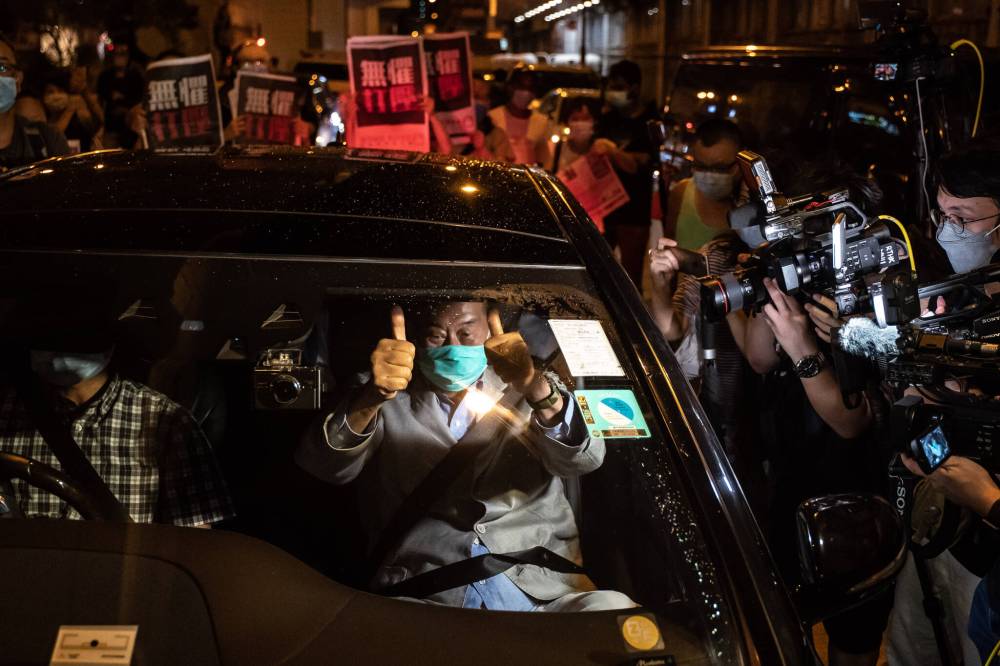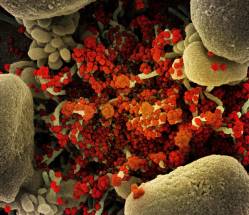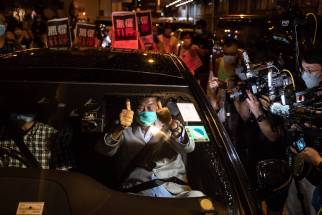Unjustified arrests show China’s brutality
Read this article for free:
or
Already have an account? Log in here »
To continue reading, please subscribe:
Monthly Digital Subscription
$19 $0 for the first 4 weeks*
- Enjoy unlimited reading on winnipegfreepress.com
- Read the E-Edition, our digital replica newspaper
- Access News Break, our award-winning app
- Play interactive puzzles
*No charge for four weeks then billed as $19 plus GST every four weeks. Offer only available to new and qualified returning subscribers. Cancel any time.
Read unlimited articles for free today:
or
Already have an account? Log in here »
Hey there, time traveller!
This article was published 02/01/2022 (1087 days ago), so information in it may no longer be current.
Police in Hong Kong last week arrested seven leaders of the pro-democracy news website Stand News, releasing five on bail and holding two others to face charges of sedition. Stand News announced it was closing and its website disappeared from the internet.
The attack on Stand News followed the Dec. 13 imprisonment of democracy advocate Jimmy Lai and seven other activists and the earlier closure of Lai’s newspaper Apple Daily. Their supposed sedition consisted of attending a public gathering in memory of those who died in China’s Tiananmen Square Massacre of June 4, 1989.
Until recently, it was legal in Hong Kong to remember the Tiananmen Square Massacre. Under Beijing’s new rules for Hong Kong, however, that is no longer the case. By attending a June 4 rally, by the Chinese authorities’ reasoning, Mr. Lai was encouraging others to attend and therefore inciting rebellion.
On the face of it, this sounded serious: Hong Kong’s democracy movement was led by criminals? Canadians know from bitter experience, however, that China’s Communist government uses criminal prosecutions as a means of intimidating their political adversaries and limiting press freedom.
On the face of it, this sounded serious: Hong Kong’s democracy movement was led by criminals? Canadians know from bitter experience, however, that China’s Communist government uses criminal prosecutions as a means of intimidating their political adversaries and limiting press freedom. Such criminal charges do not mean that the accused people are evil. Rather the charges mean that the Chinese Communist authorities are scared of their own people.
The Chinese authorities have sound reasons to fear the people of Hong Kong. They have been abusing Hong Kong for the last three years, curtailing independence of the territory’s courts, imposing public order controls and violently suppressing mass demonstrations of democracy advocates.
Canadians lived with this kind of abuse of criminal law by China during the 2,020 days when Canadian hostages Michael Kovrig and Michael Spavor were held in Chinese prisons. China’s government pretended throughout the exercise that the two Michaels were detained because they had committed espionage against China.
The allegations of espionage were obviously fake from the word go. The two Michaels were snatched a few days after Canadian police detained Huawei Technologies executive Meng Wanzhou as she changed planes in Vancouver.
The U.S. government had applied for her extradition to face fraud charges in New York. China had detained the two Michaels as hostages to coerce Canada into releasing Ms. Meng.
The falsity of the espionage charges was confirmed in the denouement. China released the two Michaels as soon as the U.S. justice authorities reached a deferred prosecution agreement and dropped their extradition request so that Canada let Ms. Meng fly home to China. It was never about espionage. It was always about intimidation.

The attack on Apple Daily, Stand News and the rest of Hong Kong’s democracy movement should be understood in the light of the Meng Wanzhou episode. China’s Communist masters use criminal prosecutions to coerce and intimidate, irrespective of the merits of the criminal case. Charges against democracy advocates do not show that the advocates deserve blame. They show that the authorities fear a popular uprising.
Chinese Foreign Ministry spokesman Zhao Lijian told a recent press conference that relations between China and Canada were at a crossroads. “Does Canada see China as a partner or a rival?” he asked. “This is a fundamental question bearing on the future of bilateral ties that Canada must think through.”
Zhao Lijian and his Beijing colleagues are teaching Canadians to see China’s Communist government as a brutal, capricious and untrustworthy regime fearful of its own people and unscrupulous in using criminal law for political purposes. If they want to earn a better reputation, they will need to adopt a more enlightened style of government.






